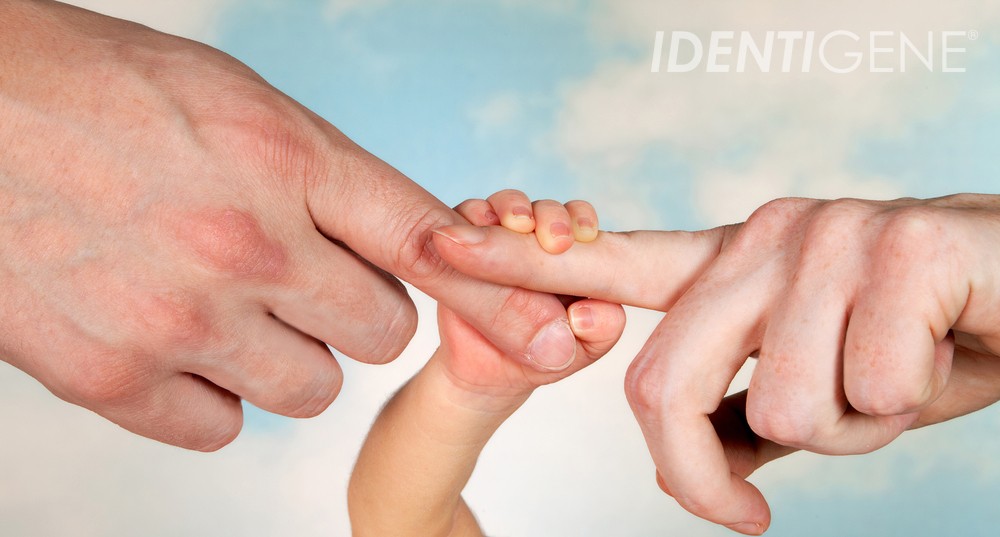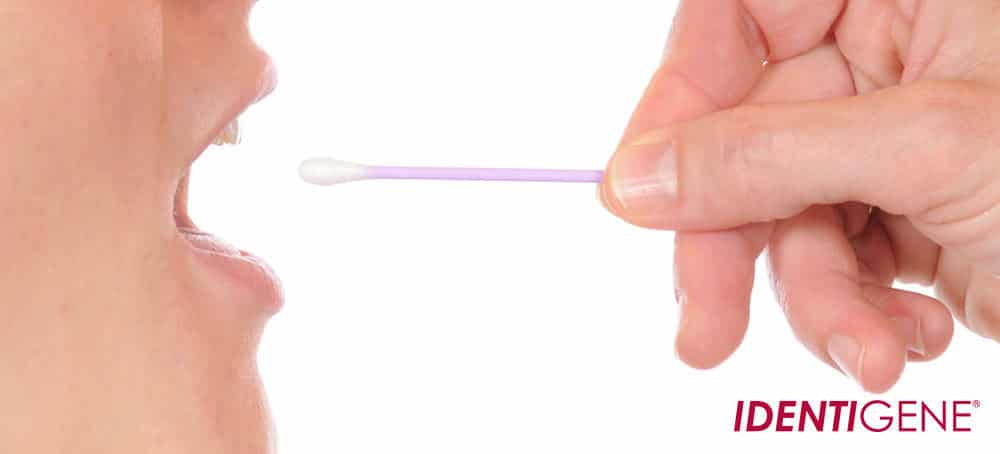DNA Testing: Fact vs. Fiction
When you hear “DNA testing,” the term itself is kind of intimidating, isn’t it? We see it used all the time in popular shows like CSI and others, where it’s given a white-hot spotlight and success or failure rests on results. Evidence at the crime scene is sent away to a mysterious lab, where it is processed super-fast and, in less than one hour (!), the “bad guy” is identified, booked, convicted and sent away for life. Fact? Well, it makes for good TV, but the way it’s usually portrayed is pure fiction, and the reality is a lot less sexy.
In real life, for most of us a diagnostic DNA test will involve testing for paternity or some other family relationship. Did you know a landmark study (Bellis) suggests that as many as 30% of children involved in a paternity test are actually being raised by men who think they are the fathers, but aren’t? This isn’t TV fiction: This is a serious issue, involving real families and raw emotions.
Thousands of paternity test samples are processed at our lab each year using the latest DNA test technologies. It’s a reliable test that works! Despite the fact that at-home paternity testing kits have been available at local stores since the HomeDNA Paternity brand introduced them to the public in 2007, there are some misconceptions that persist. Here are the Top 7 myths about paternity testing: debunked.
7. MYTH: DNA testing is too expensive
FACT: With the advances in DNA analysis, paternity testing keeps getting more and more affordable. In fact, you can purchase a HomeDNA Paternityhome collection kit from your local pharmacy for less than $30 and then the testing fee for a straight paternity test is just $139. If you need to use the test for legal purposes (such as child support or custody, or for social security) or if more extensive testing is needed for any reason, there are added costs. But it’s a small price to pay for peace of mind! Need it for court? Contact us directly at 800.929.0847.
6. MYTH: Paternity tests are an invasion of privacy
FACT: We handle each case with absolute confidentiality. We understand that this kind of testing is intensely personal and we take every step to safeguard your privacy.
5. MYTH: You have to wait for the child to be born before you can do a DNA test
FACT: Actually, prenatal DNA testing to determine paternity is a reality. However, some of the methods for collection (Amniocentesis and CVS) are quite invasive and may put the baby at risk, so many obstetricians will not agree to test strictly for paternity. A Non-Invasive Prenatal Paternity (NIPP) procedure is also an option, it’s completely safe, and can be an excellent choice for those who need or want results before the baby’s born.
4. MYTH:Paternity tests are complicated and painful
FACT: No needles! Let’s just get that out of the way, because many people assume that DNA test collections involve nasty needle-pricks. Not true! Test samples are obtained by using buccal (cheek) swabs. Participants swoosh the inside of their cheeks for 30 seconds (the parent may need to collect samples for the child if they’re young), and that’s it! Even newborn babies can have their cheeks swabbed. Each kit contains full instructions on what and how to do everything from start to finish, so it’s an easy as well as pain-free process.
3. MYTH: DNA testing divides families
FACT: Conducting a paternity test actually has lots of positive benefits and can unite families through adoption, immigration, establishing genealogies and more. It can also help resolve issues involving child support and other similar dilemmas. If someone has nagging doubts about paternity, that alone can emotionally divide a family. A simple paternity test gives clarity as well as peace of mind, because everyone can move forward and make important family decisions once they know the truth.
2. MYTH: Paternity testing takes too long and results are complicated
FACT: The super-fast, one-hour results they show on TV are fantasy, but in real life, getting results doesn’t take as long as you might think. Each paternity test kit includes a business-reply envelope, so you don’t have to pay postage. Depending on where you live, it takes 5-10 days for the samples to reach our lab. Once here, you get your results back in just two (2) business days!
1. MYTH: DNA Paternity tests are not really accurate
HomeDNA Paternity tests are the most reliable results available and the results are proven accurate. Typically, positive test results probabilities are greater than 99.99%. Because our parent company, DDC, runs an accredited laboratory, we follow strict scientific guidelines for every test. In addition, every paternity test is processed twice, so you can be absolutely confident in your results.
Follow us on Facebook and Twitter!
If you have questions about paternity tests or other DNA testing services, please contact our Client Support Center at 888-404-4363, Mon-Fri from 8:30 AM to 5:30 PM Eastern Time. Our friendly, expert representatives are ready and happy to help. Get answers anytime by visiting our Help Center.
Bibliography & Resources
Bellis, Mark A., Karen Hughes, Sara Hughes, and John R. Ashton. “Measuring Paternal Discrepancy and Its Public Health Consequences.” BMJ.com. Journal of Epidemiology & Community Health, 22 June 2005. Web. 15 Sept. 2015. <http://jech.bmj.com/content/59/9/749.long>.
Bowman, Julia. “Child Paternity Test: DNA & At Home Paternity Testing.”Child Paternity Test DNA At Home Paternity Testing. N.p., 18 July 2010. Web. 15 Sept. 2015. <http://childpaternitytest.com/category/child-paternity-test-info>.
“Paternity Testing – American Pregnancy Association.” American Pregnancy Association. American Pregnancy Association, 24 Apr. 2012. Web. 15 Sept. 2015. <http://americanpregnancy.org/prenatal-testing/paternity-testing/>.









